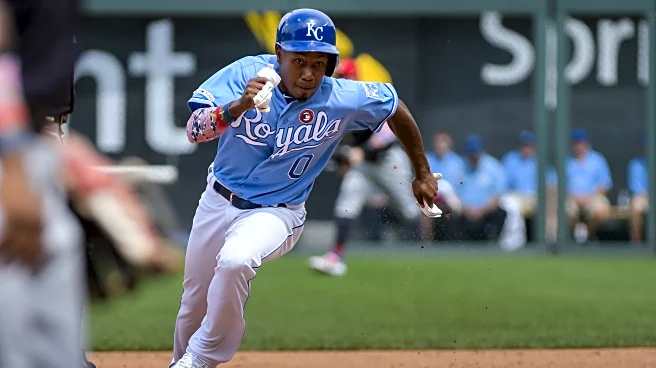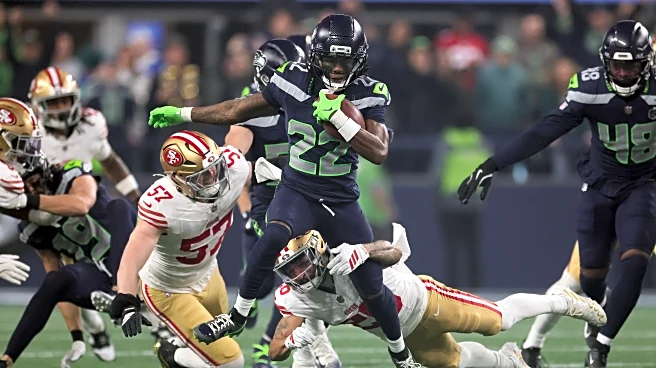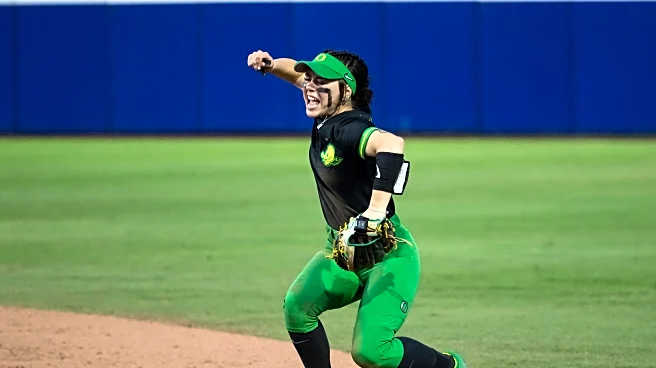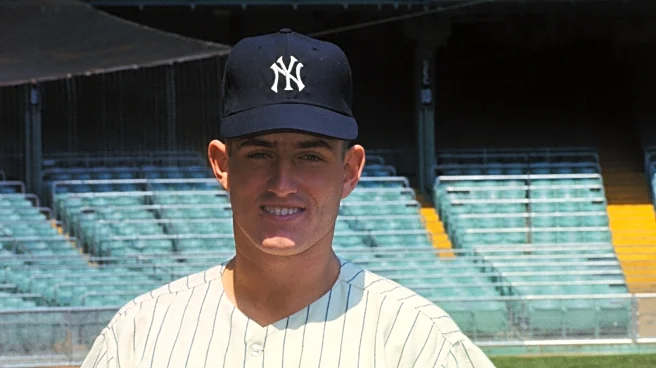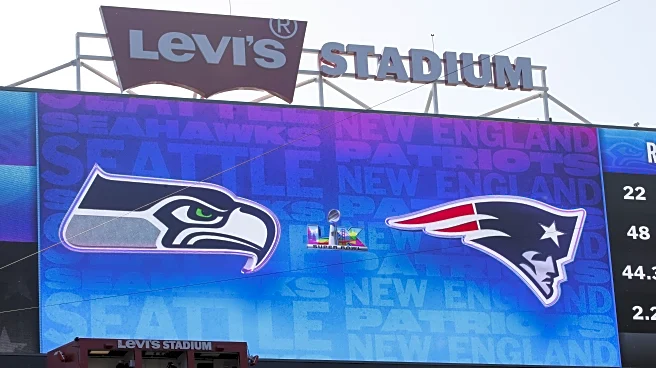What's Happening?
Tony Grossi, a reporter, recently shared his thoughts on an interaction with rookie quarterback Shedeur Sanders following Sanders' impressive preseason debut for the Browns. During the exchange, Sanders humorously addressed Grossi, expressing hope for positive coverage and noting past negative comments. Grossi initiated the conversation as Sanders was leaving the podium, leading to a candid discussion. Grossi appreciated that Sanders chose to speak away from the formal press conference setting, although he was surprised the interaction was recorded by Sanders' brother, who is documenting Sanders' rookie season. Despite the unexpected recording, Grossi described the exchange as good-natured and noted that both parties have since moved on.
Why It's Important?
This interaction highlights the evolving dynamics between athletes and media personnel, particularly in the age of social media and personal documentation. Sanders' approach reflects a growing trend among athletes to directly address media narratives and control their public image. For Grossi, the incident underscores the need for awareness regarding informal interactions being recorded. The broader significance lies in how athletes and reporters navigate their relationships, impacting media coverage and public perception. As athletes increasingly document their careers, media professionals may need to adapt to new norms of transparency and accountability.
What's Next?
Both Sanders and Grossi have moved past the incident, but it serves as a reminder for media professionals to be mindful of informal interactions potentially being recorded. As Sanders continues his rookie season, he may further engage with media narratives, influencing how his career is portrayed. For Grossi and other reporters, this incident may prompt a reassessment of how they approach interactions with athletes, balancing candid exchanges with the awareness of being recorded. The ongoing documentation of Sanders' season could lead to more such interactions being publicly shared, shaping media coverage and athlete-media relations.
Beyond the Headlines
The incident raises questions about privacy and consent in media interactions, especially when recordings are made without explicit permission. It also touches on the ethical considerations of documenting personal exchanges and the impact on professional relationships. As athletes increasingly control their narratives, media professionals may face challenges in maintaining journalistic integrity while respecting athletes' rights to manage their public image. This shift could lead to broader discussions on the boundaries of media coverage and the role of personal documentation in sports journalism.


